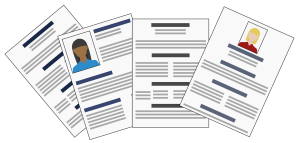Examining the Impact of Fed Rate Hikes on the Job Market
The Federal Reserve’s decision to raise interest rates has far-reaching consequences across various sectors of the economy. One area particularly sensitive to such policy changes is the job market. This article delves into the effects of Fed rate hikes on employment and explores the intricate relationship between monetary policy and job creation.
Understanding the Fed’s Rate Hikes: The Federal Reserve, often referred to as the Fed, adjusts interest rates to influence economic growth and maintain price stability. By raising interest rates, the Fed aims to curb inflationary pressures and prevent the economy from overheating. However, these rate hikes can have ripple effects on the labor market, affecting both job seekers and employers.
- Impact on Borrowing Costs: One of the primary channels through which Fed rate hikes affect the job market is by altering borrowing costs. When interest rates rise, borrowing becomes more expensive for businesses, leading to reduced investment and potentially affecting their ability to expand operations. Consequently, this slowdown in business activity can hamper job creation and limit employment opportunities.
- Business Confidence and Hiring: Uncertainty stemming from Fed rate hikes can undermine business confidence. Heightened uncertainty surrounding the future direction of interest rates can make businesses cautious about their hiring plans, as they become more reluctant to commit to long-term employment contracts. This hesitation can result in a slowdown in hiring activity, reducing job opportunities for individuals seeking employment.
- Consumer Spending and Employment: Rate hikes can also impact consumer spending patterns, which play a vital role in job creation. When interest rates increase, borrowing costs rise for consumers as well. This can reduce disposable income, leading to decreased spending on goods and services. As a result, businesses may experience reduced demand, leading to cutbacks in production and, in some cases, workforce reduction.
- Economic Slowdown and Job Losses: An aggressive series of rate hikes can potentially result in an economic slowdown. This can trigger a decline in business profits, causing companies to downsize or implement cost-cutting measures, which often involve laying off employees. Higher interest rates can make it more challenging for struggling companies to access credit, exacerbating the risk of job losses.
- Sectoral Disparities: The impact of Fed rate hikes on the job market is not uniform across all sectors. Certain industries, such as construction and real estate, are particularly sensitive to changes in interest rates. These sectors rely heavily on borrowing for investment and expansion, making them more vulnerable to rising borrowing costs. Conversely, other sectors, like healthcare and education, may be less influenced by interest rate changes, as their demand is often driven by demographic and social factors.
Conclusion: The Federal Reserve’s decision to raise interest rates has a significant impact on the job market. Rate hikes affect borrowing costs, business confidence, consumer spending, and overall economic activity, leading to potential job losses and limited employment opportunities. It is essential to recognize that the effects of Fed rate hikes can vary across different sectors and may have complex implications for job seekers and employers alike. Monitoring and understanding these dynamics can help policymakers and stakeholders navigate the job market during periods of monetary policy tightening.





